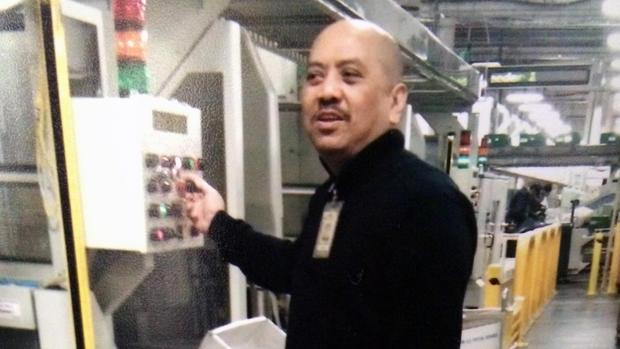Did US Postal Service policy on 911 calls lead to fatal delay for injured Filipino worker?
OAKLAND, California — A US Postal Service policy may have contributed to a critical time delays that led to the death of Filipino postal employee Samuel Macasieb, 59, who was critically injured on August 8 at the west Oakland postal processing and distribution center, an NBC Bay Area news https://www.nbcbayarea.com/investigations/USPS-Policy-May-Have-Caused-Critical-Delays-in-Life-and-Death-Situation–282951031.html investigation shows.
Macasieb had operated a letter-sorting machine for 28 years at one of the largest and busiest postal service facilities in California, employing nearly 2,000 people.
No one saw how Macasieb was injured but coworkers found him lying on his back, barely conscious, with blood coming from his mouth and ears, suffering from an apparent head trauma.
Employees didn’t call 911 right away. They contacted several supervisors and managers who then alerted the onsite postal police department, who finally contacted 911. Up to 53 minutes elapsed from the time Macasieb was found to when emergency medical personnel were contacted, according to the NBC Bay Area investigation.
The delay was the result of a USPS policy. The NBC Bay Area Investigative Unit has confirmed that the policy at the Oakland distribution facility does require that in the event of a medical emergency, an employee must find a supervisor, who must contact the postal police and ask them to call 911. The policy states, “Only the Postal Police are to initiate the 911 procedure.”
The NBC Bay Area Investigative Unit has confirmed that the policy at the Oakland distribution facility does in fact dictate that in the event of a medical emergency, an employee must find a supervisor, who must contact the postal police and ask them to call 911. The policy states, “Only the Postal Police are to initiate the 911 procedure.”
The internal investigation report states that Macasieb’s coworkers found him sometime between 3 a.m. and 3:30 a.m. According to dispatch records, the call to 911 didn’t happen until 3:53 a.m.
“They wasted so much time,” Larnie Macasieb, Samuel’s wife of more than 25 years told NBC Bay Area. “It’s so sad because I can imagine him fighting for his life.”
After the call to 911, paramedics responded in seven minutes and transported Macasieb to Highland Hospital in Oakland. But Macasieb didn’t wake up from his coma. No one can say if his outcome would have been different if 911 had been called sooner, but it’s a question that lingers with his wife. “Maybe if he was brought to the hospital [sooner] it could have been different,” she said.
Larnie Macasieb and her three grown children decided to remove the family patriarch from life support 10 days later, one month before the surprise party they had planned for his 60th birthday. The cause of death, according to the Alameda County Coroner’s Office, was a blunt injury to the head.
Several employees from the Oakland facility told the Investigative Unit that postal service workers are routinely instructed not to call 911. The Oakland policy mirrors the national USPS policy.
Augustine Ruiz, a corporate communications manager for the USPS Bay-Valley District, which includes the Oakland facility, told NBC Bay Area the 911 policy exists to summon emergency responders as fast as possible.
But in Macasieb’s case the policy seemed to slow down the response. The officer was on a different floor than where Macasieb was, preventing her from being able to answer the dispatcher’s basic questions such as what part of the body was injured and whether his eyes were open.
During the eight-minute call the officer had to use her radio 15 separate times to ask employees next to Macasieb to retrieve or pass along information, according to the NBC news investigation. Several times the dispatcher asked if anyone on scene could call back with more precise information.
“We’re talking about a human life and seconds matter,” Dr. James Doty,
chief of the Neuroscience Institute at El Camino Hospital in Mountain View, told NBC Bay Area. He said when dealing with significant brain injuries, the sooner the patient receives medical attention the higher the likelihood that the person will have a better outcome. “This is a matter of life and death,” Doty said.
It is also a matter that the postal service considered closed until NBC Bay Area started asking questions. The USPS Serious Accident Review Board found that the employees and supervisors “followed the SOP [Standard Operating Procedure] exactly” and that “the response was excellent.”
But many employees complained that the USPS’s 911 procedure prevented Macasieb from receiving emergency medical care as soon as possible.
Employees said they want postal service leaders to adopt a new policy that tells employees to call 911 first—then notify their supervisors and the postal police.
